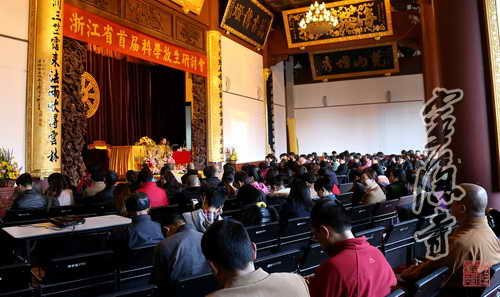
Temple witnessing the first Seminar on Releasing lives Scientifically of Zhejiang Province
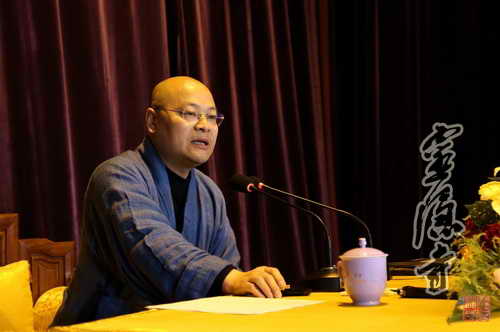
Deputy Chairperson of Zhejiang Buddhist Association, Lingyin Abbot
Venerable Guangquan speaking about releasing lives following the Buddhist dharma
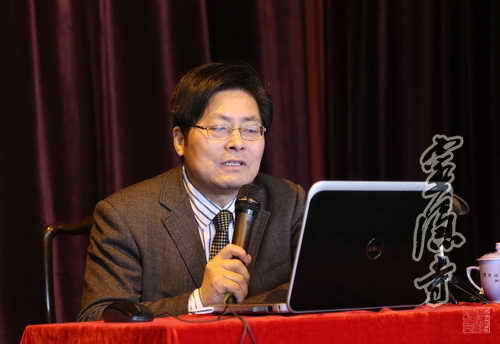
Mr Zhu Shuiling, Deputy Head of the Zhejiang Association of Animal
Protection, giving a speech on Releasing Lives Scientifically
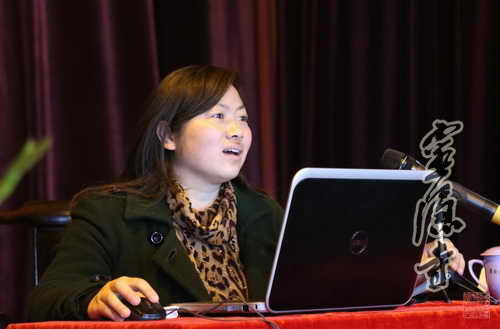
Ms. Zhang, introducing relevant laws and regulations to the audience
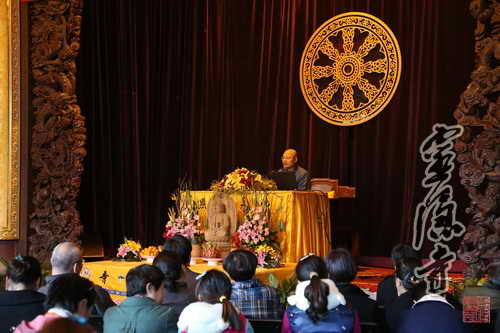
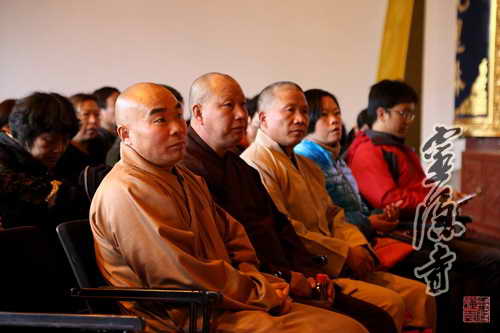
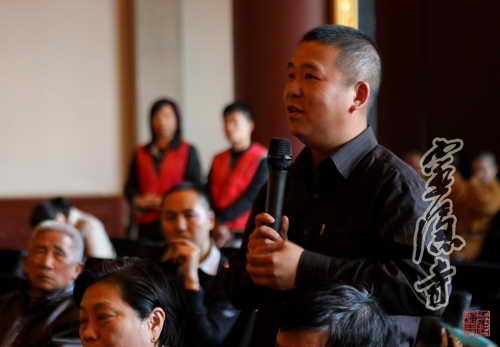
A lay believer raising questions to Venerable Guangquan on the ways to releasing the lives scientifically
15 March, 2014, The first Seminar on releasing lives scientifically of Zhejiang Province took place in Lingyin Temple. The seminar was jointly organised by Zhejiang Buddhist Association(ZBA), Zhejiang Association of Animal Protection(ZAAP) and Hangzhou Centre for Supervision and Management of Fishery Administration, Fishing Ports and Fishing Boats(HCSMFAFPF). The seminar attracted many members of animal-freeing groups across the province as well as a large number of lay believers. The Deputy Head of Zhejiang Buddhist Association, Lingyin Abbot Venerable Guangquan attended the seminar and enlightened the audience on releasing lives scientifically under Buddhist principles.
The Seminar, chaired by Mr Zheng Guoyuan, Secretary General of Zhejiang Buddhist Association, started at 2pm, 15 March, in the Main Hall of Lingyin Temple. During the Seminar, Mr. Zhu Shuilin, Deputy Chairperson of Zhejiang Association of Animal Protection, gave a talk on the relationship between releasing lives and animal protection, the importance of following scientific principles while releasing lives, and on various ways to protect animals. Ms Zhang Wanping, Deputy Head of HCSMFAFPF, spoke about national laws and regulations on releasing lives scientifically. She reminded the audience of the legal restrictions on releasing lives and urged the audience to be aware of the balance of the ecosystem when releasing lives.
Deputy Head of Zhejiang Buddhist Association, Lingyin Abbot Venerable Guangquan then enlightened the audiences by Buddhsit idea on releasing lives scientifically . Starting with a story of a child who refused to eat fish and meat out of love towards animals and eventually moved her mother, Venerable Guangquan highlighted the importance of protecting instead of killing lives in the construction of a harmonious,
ecologically-conscious society. Venerable Guangquan pointed out that the liberation and protection of the lives had been a recurrent theme of Buddhist classics, exemplified by the teachings on the sin and punishment of killing and on the virtue and merits of animal-freeing in Avatamsaka Sutra, Brahmajala Sutra and Bhai?ajyaguruvai?ūryaprabhārāja Sūtra. Masters of Chinese Buddhism had also demonstrated the mercy of liberating and protecting the lives in their daily practice. Masters such as Tiantai Zhizhe, Yongming Yanshou and Lianchi had all advocated for the freeing and against the killing of animals. Many prominent figures in Chinese Buddhism had built ponds to liberate fishes and freed animals themselves. Master Hongyi, for instance, took animal protection as part of his daily practice. He always shook his chair before sitting down to make sure that he would not hurt the insects in the chair by accident. Following him, his disciple Mr.Feng Zikai published On Protection of the lives, a booklet of paintings on animal protection, which remains popular today. One can say that the history of Buddhism witnessed the development of thoughts on the libration and protection
Venerable Guangquan also argued that the public of the contemporary society is yet to be made aware of the importance of protecting lives despite the advancing material civialisation. Animal products, which are produced in mass, continues to jeopardise people’s physical and mental health. The caring, protecting and freeing of animals, as well as the promotion of ecological balance,are thus physically and mentally purifying. Moreover, such acts are required for the harmonious, sustainable development of the human beings. When liberating animals, one should do so with an unconditioned, passionless mind without the restriction of time and place. One should also free the animals following scientific principles, and bear in mind the benefit for both the freed animal and the environment. Only when we carefully think about the chance of survival for the animals to be liberated and their potential impact on the environment can we effectively prevent harm to the animals and preserve the balance of the environment.
The audience, delighted by Venerable Guangquan’s speech, eagerly raised questions to the Venerable on the ways to free animals scientifically and effectively. The Venerable responded their questions with great mercy and expertise. All participants of the seminar were tremendously pleased by the knowledge acquired as well as the Buddhist merit they received from the event.